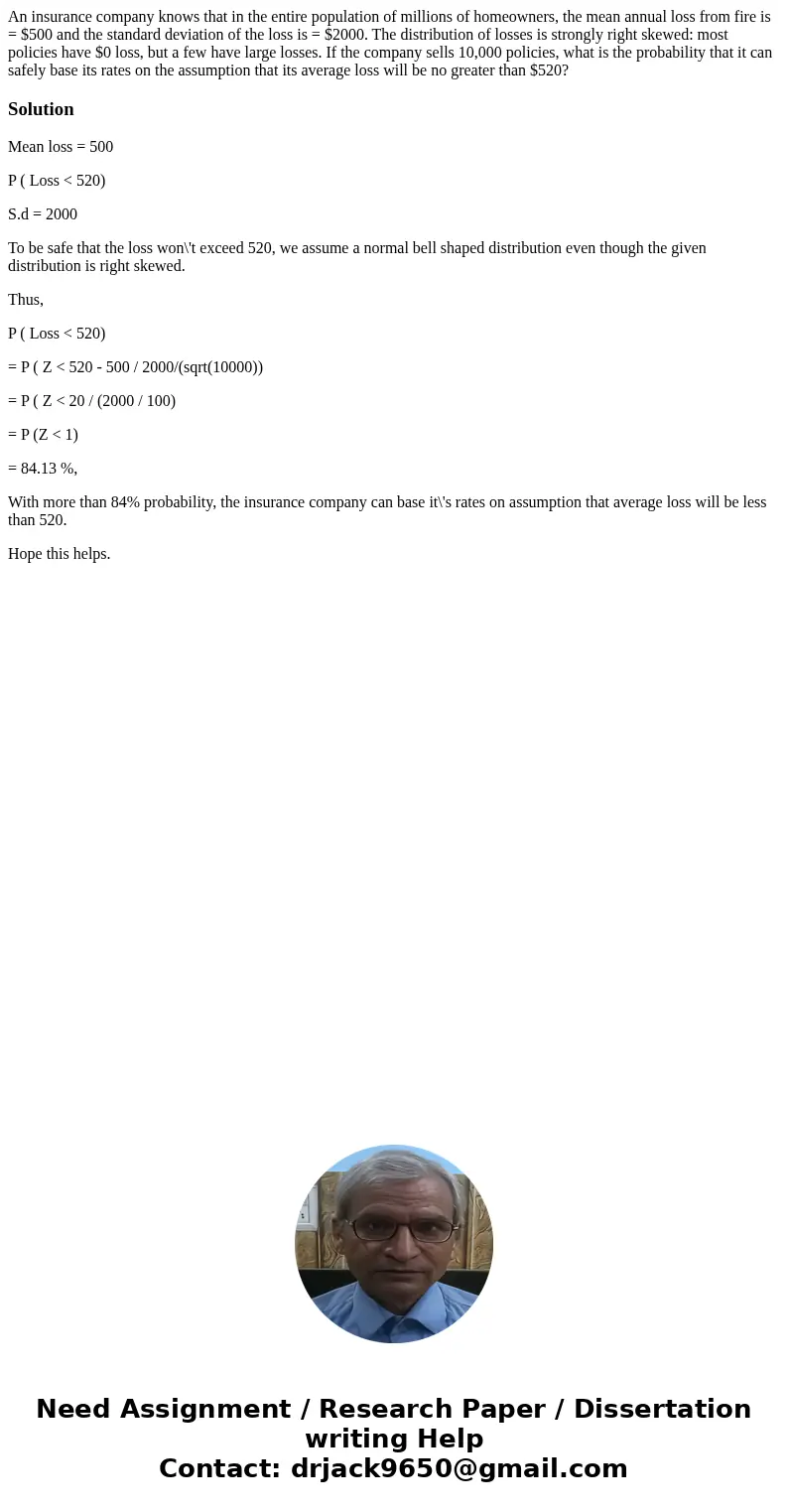An insurance company knows that in the entire population of
An insurance company knows that in the entire population of millions of homeowners, the mean annual loss from fire is = $500 and the standard deviation of the loss is = $2000. The distribution of losses is strongly right skewed: most policies have $0 loss, but a few have large losses. If the company sells 10,000 policies, what is the probability that it can safely base its rates on the assumption that its average loss will be no greater than $520?
Solution
Mean loss = 500
P ( Loss < 520)
S.d = 2000
To be safe that the loss won\'t exceed 520, we assume a normal bell shaped distribution even though the given distribution is right skewed.
Thus,
P ( Loss < 520)
= P ( Z < 520 - 500 / 2000/(sqrt(10000))
= P ( Z < 20 / (2000 / 100)
= P (Z < 1)
= 84.13 %,
With more than 84% probability, the insurance company can base it\'s rates on assumption that average loss will be less than 520.
Hope this helps.

 Homework Sourse
Homework Sourse